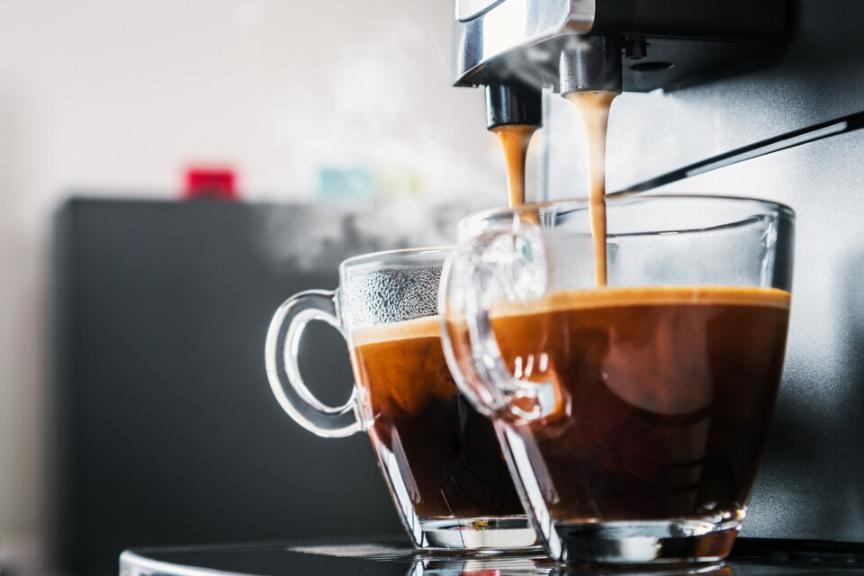
Purchasing a coffee maker is not as simple as it sounds, especially if you have exact preferences for how you drink your coffee. You should carefully think about this choice and only make it after studying because there are many things to consider before buying a coffee machine. This comprehensive guide can assist you in selecting the ideal coffee maker.
What Kind of Coffee Maker Do You Need?
Let us now look at the various types of coffee makers available so that you may choose the one that best meets your needs.
1. Single-Serve Coffee Machine
Single-serve coffee makers, pod coffee machines, or one-cup coffee machines are designed to produce only one cup of coffee at a time. You must use single-serve pods or K-cups to manufacture and drink coffee from this equipment. These pre-made cups can create the perfect brew in just a few minutes.
Features of a Single-Serve Coffee Mac
Single-serve coffee machines are straightforward to use. Put the pods into the machine, pour water, and let the beverage brew. This method avoids the intermediate processes involved in traditional coffee-making, such as measuring out quantities and adding essential flavors. These machines produce ground-free coffee with no floating residues, resulting in a clean and straight brew.
Furthermore, the pods used in a single-serve coffee machine are often supplied individually. This allows you to use only as much coffee as you need, rather than opening a pack and storing it half-used. Because the pods stay covered and out of the light and air, none of the flavors are lost or watered down.
Pros
- Easy to use and maintain.
- Option to test other flavors.
- Customizable brews
- Generally priced reasonably.
Cons
- Purchasing coffee pods may be pricey.
- No control over the coffee grind.
2. Drip Coffee Maker
This is the most prevalent coffee machine form found in homes and offices. It is also the most widely available in online and offline markets and is one of the simplest coffee makers. It’s best suited for folks new to preparing coffee or wanting to brew their beverage traditionally.
Features of Drip Coffee Makers
Thanks to the logical and primary mechanism, operating a drip coffee machine becomes quite simple after a few uses. Add the desired amount of ground coffee to the proper container, add some water, and heat to produce the coffee decoction. Once this is completed, you can prepare as many pots of coffee as you want until the brew in the machine runs out.
These machines typically have a coffee grinder, preprogrammed settings, and water temperature controls. Most variants additionally offer an auto-shutdown function and filter modifications. Furthermore, drip coffee machines allow you to customize the strength of your coffee based on your specific preferences.
Pros
- Simple, straightforward operation.
- Various models to pick from.
- Produces vast volumes of coffee.
- Typically priced reasonably.
Cons
- There are not many flavors to select from.
- You cannot make just one or two cups.
3. French Press
The French press coffee machine, widely used in nations such as Italy, France, and the United Kingdom, is less prevalent in the United States than the drip coffee maker. Its beginnings may be traced back to 1929 when it was originally patented. Several changes have been made to it since then to meet the wants of its customers.
Features of the French Press
A French press coffee maker is mechanically powered and does not require electricity. This can help you save a lot of money in the long term. A French press is similar to a drip coffee maker in that you add the coffee grinds, pour the hot water, and close the cover snugly. When you press it down, the French press machine extracts the essence of coffee from the additional grinds.
Getting the brew right may take a few tries. So, until you get the hang of it, you may need to experiment with a few brews to find the optimum flavor. Most French press machines include a lightweight glass body and a built-in plunger that presses the essence down through the coffee grounds.
Pros
- There are no additional costs in the long run.
- It does not require electricity to function.
- Generally portable.
- Maintains coffee’s natural flavors and oils.
Cons
- Coffee typically includes unfiltered grounds.
- It isn’t easy to get the hang of
4. Espresso Machine
An espresso maker is easily one of the most popular types of coffee appliances, with most seasoned coffee fans loving and praising them. This type of coffee machine was first patented in 1884 by Italian Angelo Moriondo. Today, espresso makers can produce thick, concentrated black coffee with rich flavor and taste.
Features of a Espresso Machine:
Espresso makers are typically heavy-duty devices capable of producing robust and flavorful cups of coffee. You may also use this coffee machine to prepare a variety of beverages, including lattes, macchiatos, and mochas. You can only brew one or two espresso shots at a time. Depending on the capacity, the machine can produce numerous shots in succession.
There are numerous brands and kinds of espresso machines. A water boiler, a pressure pump, and a portafilter are among the most common features in all versions. Espresso machines are also commonly compatible with coffee pods, allowing you to experiment with different coffee flavors if you’re interested. Furthermore, these machines typically have preset settings, making them ideal for regular usage.
Pros
- produces high-quality beers.
- Ideal for coffee enthusiasts.
- It lets you make different kinds of coffee.
- Keeps coffee’s flavors.
Cons
- It is pretty costly in general.
- Beginners might find it challenging to operate.
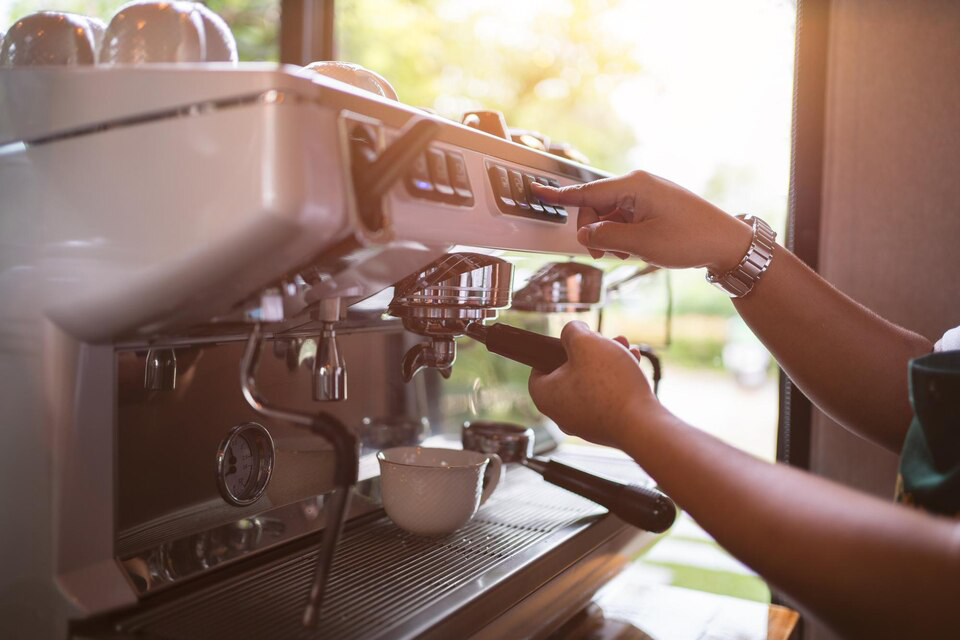
Best Coffee Machine Features to Consider
Whatever type of coffee maker you select, these are some of the crucial machine features to consider:
Milk Frother
If you want milky drinks like cappuccinos and lattes, consider a coffee maker with a milk-frothing feature. Numerous alternatives are available: you can get your drink made for you or froth the milk and add it to your coffee yourself.
- Steam wand – The traditional way to use ground coffee and some tools that make coffee from beans. Before adding the milk to your drink, you foam it in a separate jug with a burst of steam. Some premium versions are somewhat automated, so you must only place the wand in a jug to make your saliva.
- Standalone frother – A standalone frother is a standalone device that whisks and warms milk to add to your coffee—often sold alongside Nespresso and Lavazza pod machines.
- Automatic built-in frothers – are in bean-to-cup and some ground coffee/pod machines. Once you pour milk into a particular container, a built-in frother will take it and turn it into foam in the cup.
- Milk pods – pre-prepared UHT or powdered milk pods that squirt foam directly into your cup—used in Tassimo and Dolce Gusto pod coffee makers.
The Best Coffee Makers We’ve Reviewed
The Breville Bambino Plus Is The Best Espresso Machine For Beginners.
Breville Espresso Machine’s latest pint-size espresso machine is as reliable as a semiautomatic machine can be. It heats up in seconds, and shots are consistently excellent because it only comes with pressurized filter baskets. However, we had a non-pressurized filter basket that fit the machine and tested it. The results were fantastic; however, without a pressure gauge, it may be difficult to utilize this machine to learn how to draw a good shot if you do not already have expertise. The Bambino’s most prominent feature for beginners is automated milk texturing.
With a preprogrammed steam wand and a milk sensor, insert the wand into the milk jug, select the amount of foam you want (cappuccino or latte), press a button, and wait. The automatic milk texturing here was superior to what we achieved using any of the manual equipment. Like the Solis, this tiny espresso machine takes up almost no counter space.
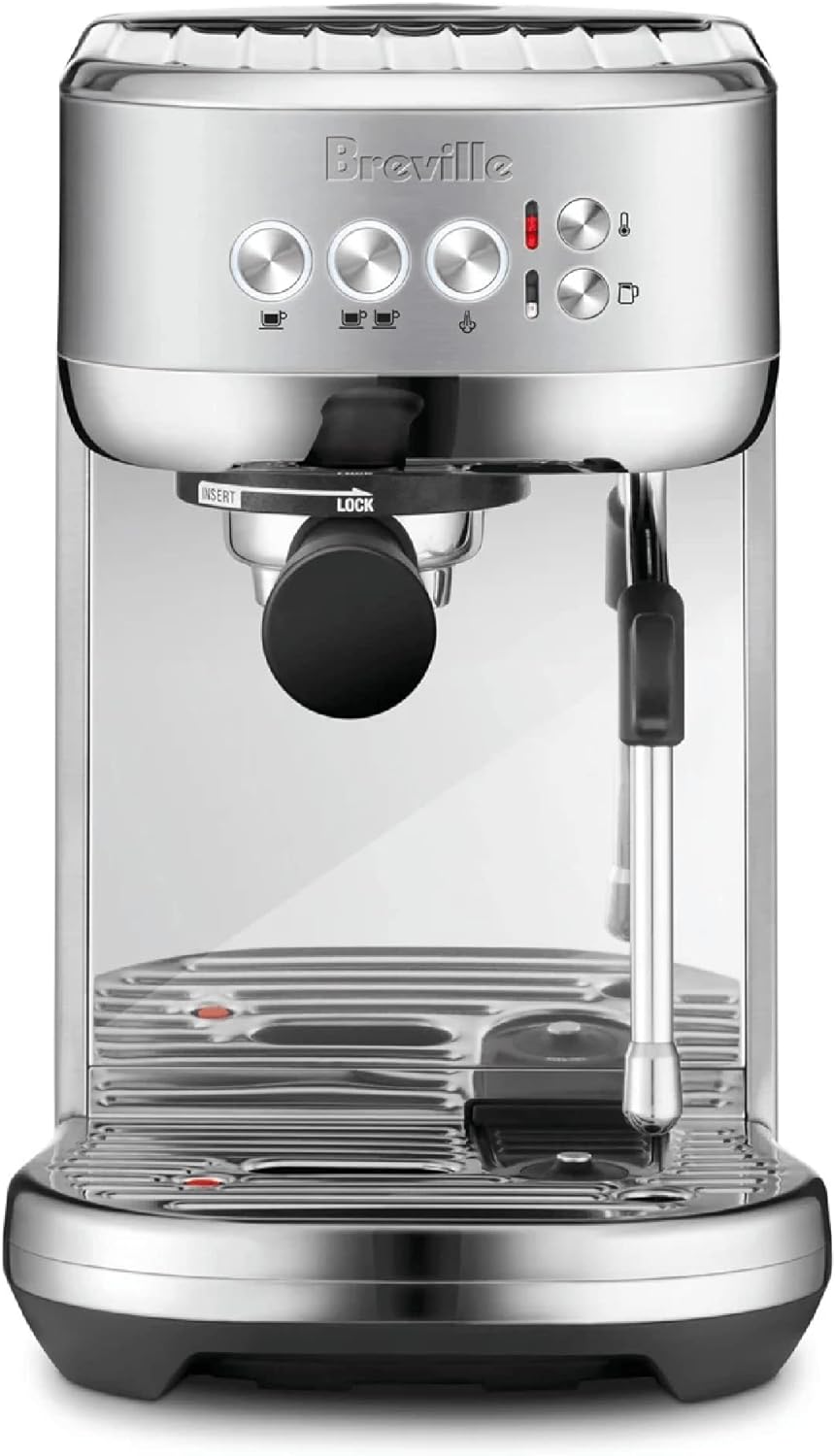
The Best Pod Coffee Maker Is The Nespresso Vertuo Plus
The Nespresso machine coffee Vertuo can make everything from single espresso-style shots to 8-ounce cups with the push of a button. It’s not quite as flexible as some of the other single-serve machines we liked—the Bruvi can make cold brew, hot drip coffee, and Americanos, while the Spinn can do even more. The machine can read a barcode placed on each pod and program itself to brew the type of coffee the pod is designed for.
That means you don’t need to choose a cup size, brew strength, or anything else. During our testing, we discovered that the coffee was well-balanced. The pods are also entirely recyclable through Nespresso’s recycling program, which requires you to mail them away to be recycled. The Nespresso not only makes delicious coffee, but it also works quickly. That’s how long it takes to heat up and make a full cup of coffee.
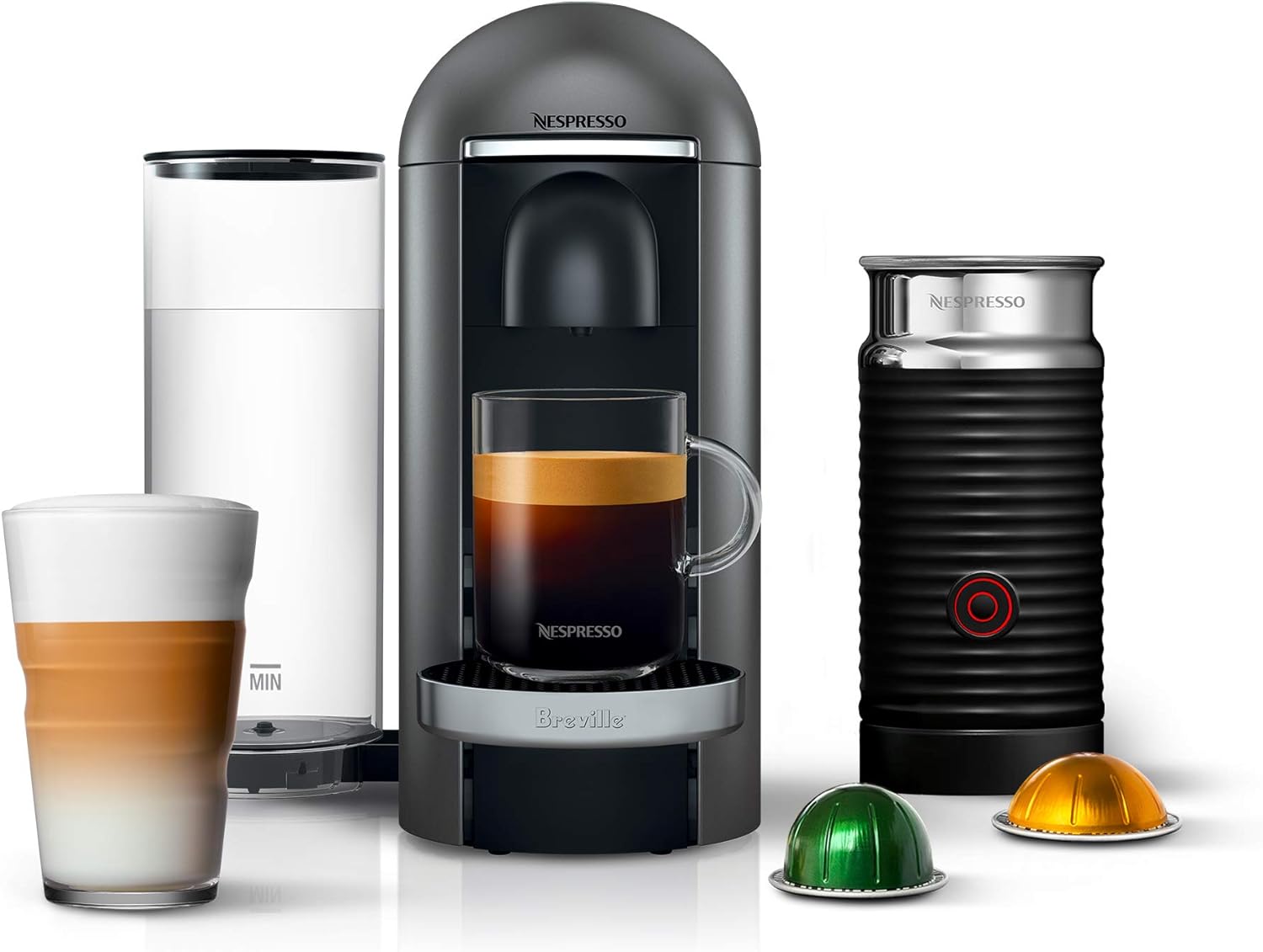
The Best French Press Is Espro P7
Espro manufactures the most intelligently designed French presses available. Their multiple interlocking filters and rubber sealing gasket appear a touch over the top, but they aren’t for show. They are effective. The sleek P7 model got impressively close to producing a perfectly clean cup of coffee (filtering out all the grounds as you pour). Still, Espro’s presses were also the only ones intended to halt the coffee extraction process once you pushed the plunger.
Most French presses keep the coffee in touch with the water throughout the process, which can result in large amounts of over-extraction (and undesired flavors) at the bottom of the carafe. But the Espro generates a little buffer zone after descending to prevent this. It’s also a pretty attractive coffee maker. While Bodum’s Chambord press is the category’s most iconic design, the stainless-steel P7, available in a half-dozen finishes, is more modern, beautiful, and durable.
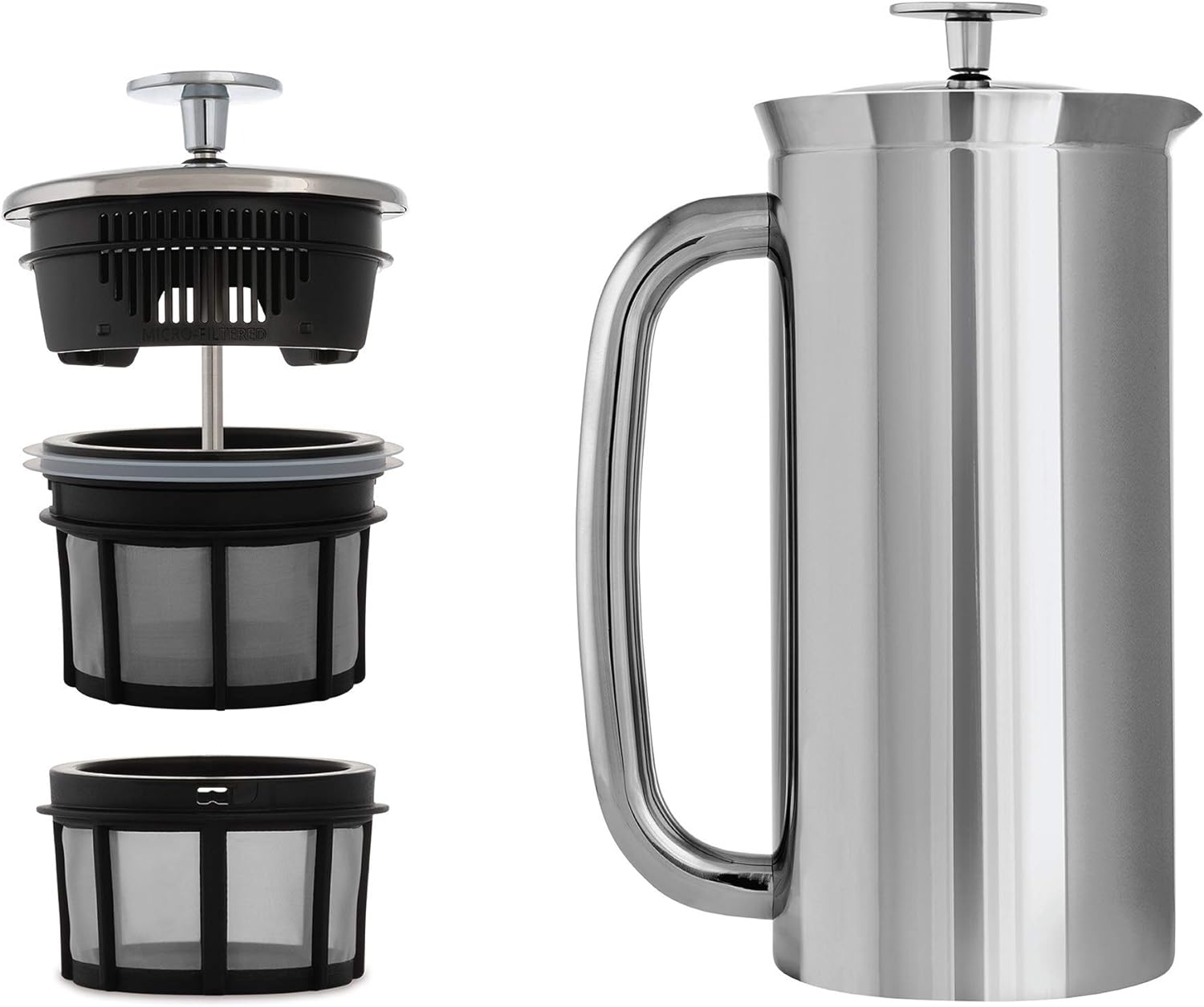
Nespresso Dolce Gusto Genio 2 Coffee Pod Machine
This fun-looking coffee capsule machine has undoubtedly captured the eye of the youthful and colorful generation. Aside from the unique body form, the chrome finish on the drip tray and pod holder gives the machine a polished and sophisticated appearance.
The best thing about the Genio 2 is its ease of use: everything is simple with this machine. Making coffee is easy; you only have to push a button, let the machine heat up for a minute, put in a capsule, and then pull the handle to start or stop the coffee flow.
Making cappuccinos is equally simple; insert the coffee pod and dispense half a cup. Then replace the milk pod and dispense the remaining half. The procedure takes around 20 seconds, and a cup of creamy cappuccino is ready.
Nescafe capsules come in a wide variety and are not restricted to regular espresso. You can get espresso, lungo, chocolate, chocolate caramel, ice peach tea, ice cappuccino, and much more!
This machine is straightforward to clean because it leaves a little mess. The water tank can be removed, making cleaning or adding water easy. The drip tray needs a few wipes to stay clean.
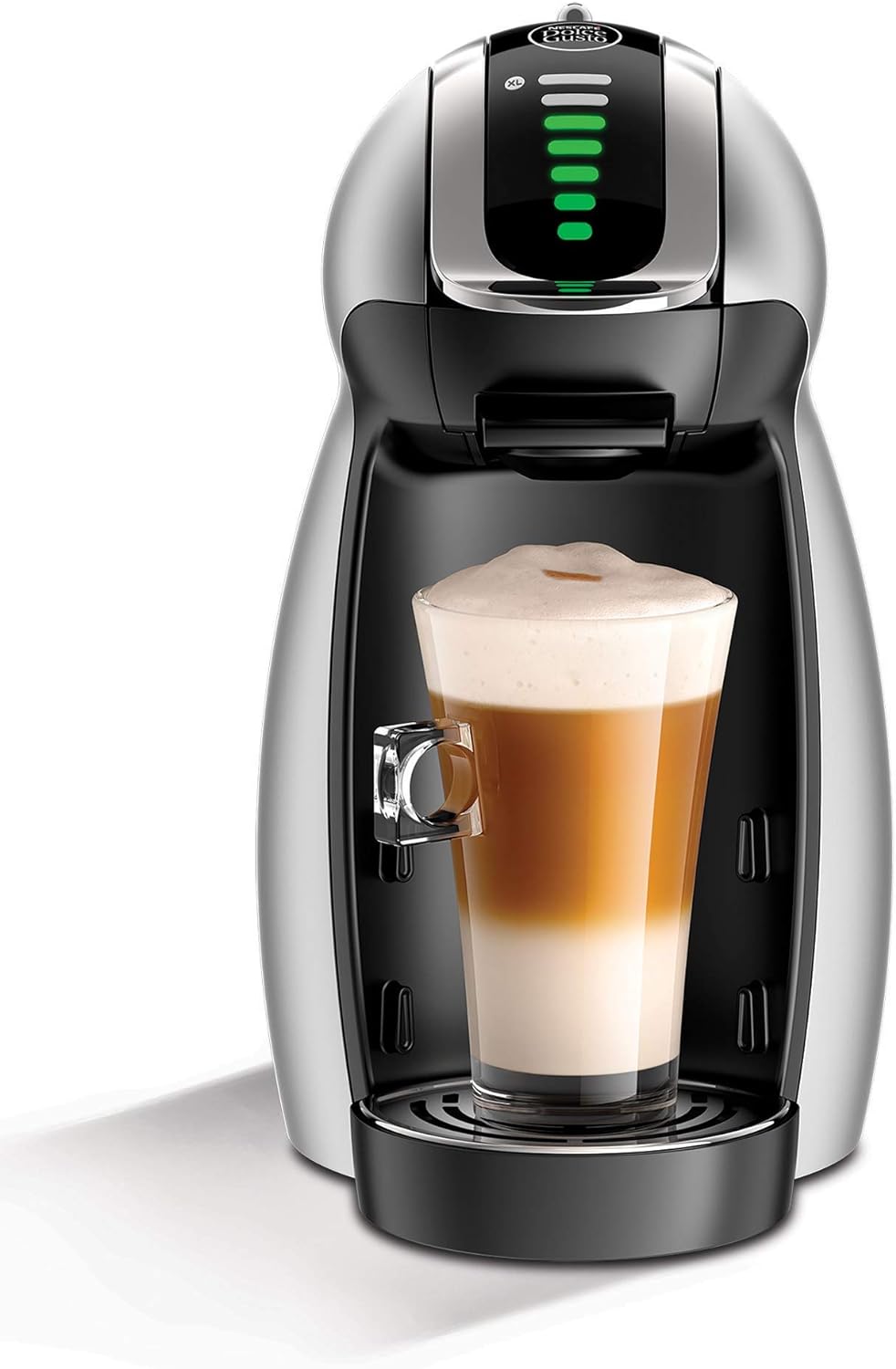
Keurig K-Elite Single-Serve Coffee Maker
The Keurig K-Elite Single Serve Coffee Maker is an excellent option for people who want a simple, reliable machine with few extras. Our reviewer rated it in the following categories:
Design: The Keurig Coffee Maker K-Elite Single Serve includes a 75-ounce water tank, a drip tray, and a water filter. Its contemporary design suits a modern kitchen while remaining functional and occupying minimal space. Despite the lack of labeling, the buttons are visible from a distance and illuminate when selected for ease of use. Available in three colors: brushed silver, gold, and slate.
Performance: This machine provides a seamless experience – insert your coffee pod and select your drink size: 4, 6, 8, 10, or 12 ounces; this is accomplished by pressing a button. It’s worth mentioning, however, that the cup sizes aren’t written on the buttons; they’re only shown by photographs, so you might need to study the user manual for the first time.
This machine also works well in that it makes little noise when heating up and brewing, and it is simple to clean, as the only removable component is the water reservoir, which can be washed in the dishwasher. It creates a decent cup of coffee, which you may customize by selecting the strong button before brewing.
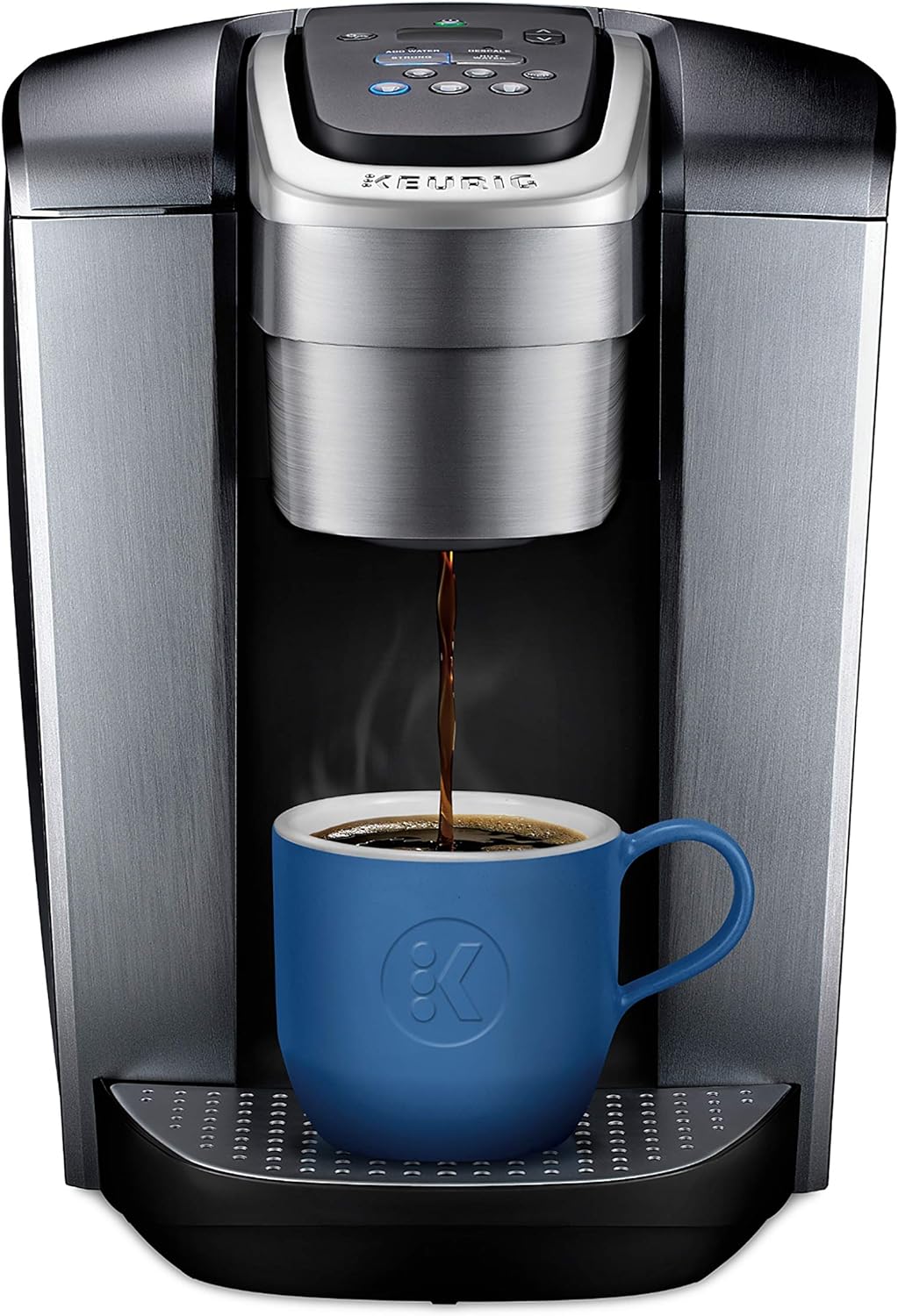
Is It Worth Purchasing A High-End Coffee Maker?
People who drink coffee probably won’t agree on what an “expensive coffee maker” is, so the answer is relative. What we can say for sure is that you should not buy a remarkably inexpensive coffee machine. What counts cheap varies by type of machine.
For example, we tried an acceptable drip coffee maker that cost roughly $100 but discovered that all electric espresso makers under $300 were disappointing to the point of being unusable. It’s also often true that more expensive coffee makers provide better coffee.
That’s because brewing coffee involves a finite number of inputs, including the quantity of coffee beans, the grind of coffee beans, the amount of water, the temperature of the water, and the brewing duration.
Due to improved water pumps, temperature monitoring with PIDs, and more exact measurements, expensive coffee machines better regulate those final three parameters. Expensive devices with built-in grinders, such as super-automatic espresso makers, can also do an excellent job with bean amount and grinding. Still, we believe standalone burr grinders perform better in general.






